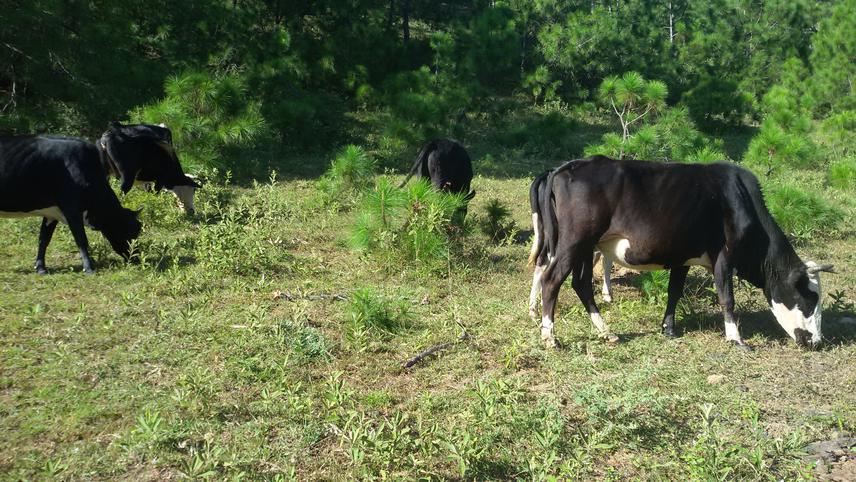Kencho Tshering
The aim of my project is to conduct first ever scientific assessment of livestock management and its impact on conservation of endangered wild carnivores in western Bhutan.

Local breed cattle freely grazing in the Conifer Forest.
Bhutan is home to some of the globally endangered species of top carnivores, such as the tiger (Panthera tigris), snow leopard (Panthera uncia), and Asiatic wild dog (Cuon alpinus). Yet, Bhutanese farmers are paying the prize of high predator diversity and density in many places. Every year, many livestock owners lose sizable number of their domestic animals to wild apex predators, notably the tiger, snow leopard, common leopard, and wild dog.
Recent records of farmers' negative attitude towards predators and conservationists could be attributed to such losses which if unaddressed sooner would jeopardize the country's long years of conservation efforts.
Therefore, I would like to assess different livestock management practices and their impact on the conservation of threatened wild carnivores in western Bhutan.
- I will focus my research in four western districts (dzongkhags) of Bhutan, namely, Thimphu, Punakha, Paro, and Gasa. I will select two sub-districts (or geogs) from each district.
- In order to understand different types of livestock management practices, I will conduct a detailed questionnaire survey of the livestock owners in the study sites. The questionnaire will be semi-structured to elicit appropriate responses from the respondents.
- To understand and compare the vulnerability of livestock to wild predators among different management practices, some of the information will be gleaned from the questionnaire survey, but field surveys will be conducted to scientifically asses how vulnerable are the livestock animals to wild predators. For this ecological assessment, field visits will be made to the forest lands and pasture lands situated around the villages in the study areas where grazing occurs.
- To assess the impact of livestock management practices on wild predators, necessary information will be derived from the questionnaire surveys and field surveys to arrive at some scale of likelihood of retaliation towards wild predators. Any information on retaliatory killings of wild predators will also be indirectly gleaned from the livestock owners using some indirect questions.
My research work is geared towards paving the way for development of a comprehensive livestock management policy that will seek to effectively mitigate human-predator conflicts. An important output of my research would be creation of a baseline data on livestock management practices and their relationship with livestock losses. This research envisages contributing towards effective conservation of the globally endangered apex carnivores in Bhutan.